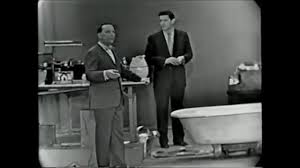
Error, Intention, Contingency, Cage
I am thus arguing here for an expanded view of aesthetic intentionality that comprises both the intentional and the immediately unintentional aspects of a work, since all of these aspects participate in the fundamentally intentional act of making an artwork. And the unintentional aspects include both the intentionally unintentional ones such as Cage’s aleatory results and real world contingencies, and the unintentionally unintentional ones such as my accidentally getting red paint on the brush when I’d meant blue (and my keeping the red blotch anyway in the final painting). Whether the materials are controlled or not, the overall action is intentional, and this is true no matter how aleatory or indeterminate its elements. An aesthetic action has two inalienably intentional moments, the beginning and the end: the decision to begin it and the decision to accept everything in it (no matter how unexpected) by signing, publishing, performing or showing it.

